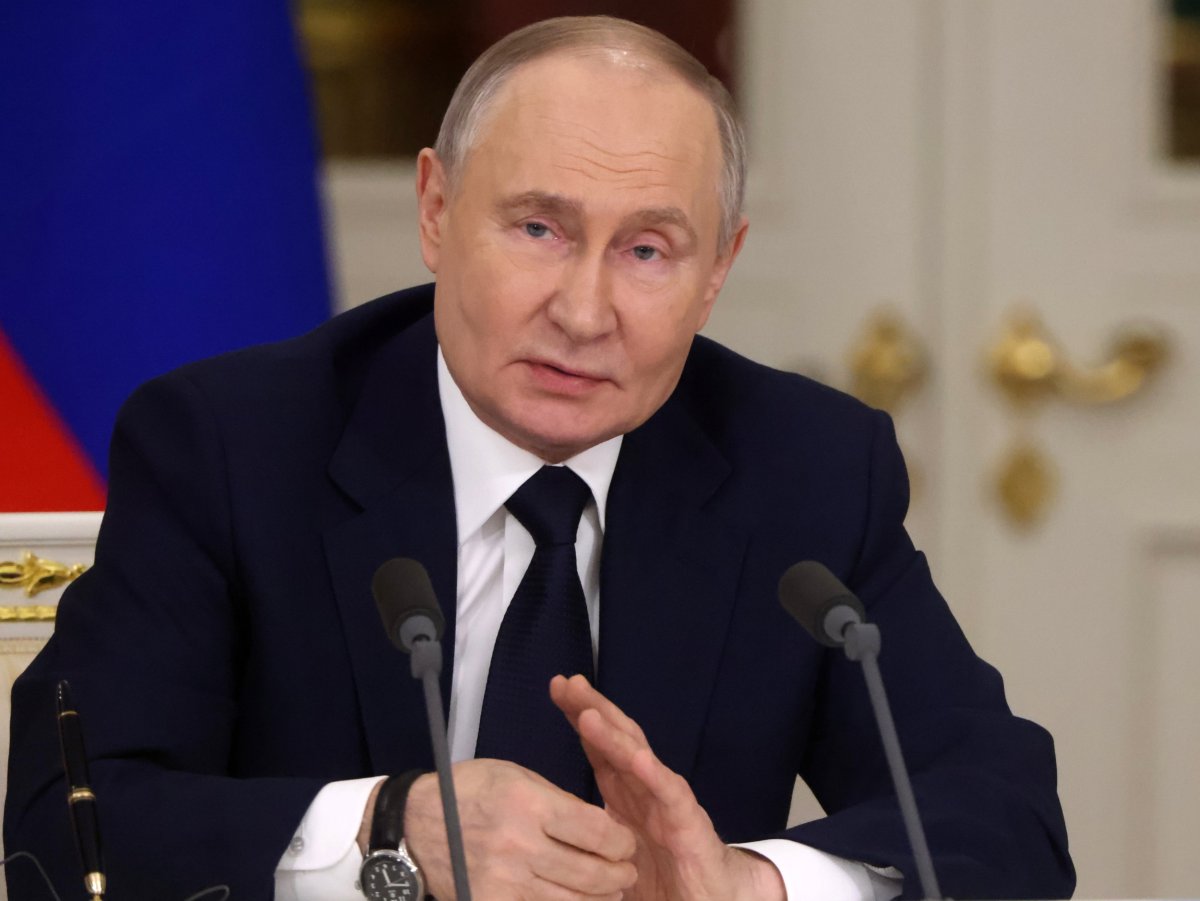Russia is demanding control of cities in Ukraine that its forces don’t currently occupy as part of a deal with :President Donald Trump to potentially bring an end to the war, the Institute for the Study of War (ISW) has said.
Newsweek has contacted the Russian Foreign Ministry for comment by email.
Why It Matters
Washington and Moscow are holding talks to potentially bring an end to the three-year-old war—talks from which Kyiv has been excluded.
Observers of the conflict have raised concerns that Trump—who has pledged to bring an end to the conflict—may strike a deal with his Russian counterpart Vladimir Putin that pressures Ukraine to abandon its aspirations to join NATO and cede its currently occupied territories, effectively capitulating to Moscow’s demands.
According to the ISW, Moscow is demanding control of cities within these territories it has no prospect of seizing, raising concerns about a settlement that could further undermine Ukraine’s sovereignty.
What To Know
Trump has suggested that both Russia and Ukraine must make concessions in the war. Kyiv has rejected any idea of ceding territory to Moscow, while Putin has demanded that Ukraine give up its aspirations of joining the NATO military alliance, and cede its Luhansk, Donetsk, Kherson and Zaporizhzhia regions.
The ISW think tank, based in Washington D.C., noted that there are several large cities in these regions that Russian forces “do not currently occupy and have no prospect of seizing.”
Russia’s occupation of the remainder of the four Ukrainian oblasts would include large cities such as Kherson City (pre-war population of about 275,000), Kramatorsk (147,000 people), and Zaporizhzhia City (706,000)—all of which remain under Ukrainian control,” the think tank said.
Conceding to Putin’s demands would effectively hand over 1 million Ukrainians to Russia, the ISW said.
“The Russian occupation of such large population centers would significantly escalate the humanitarian catastrophe in Ukraine. Russian authorities would likely employ the same tactics of oppression, displacement, and forcible assimilation against Ukrainian civilians living in these areas as they have employed against the millions of Ukrainians who have been living under Russian occupation for over three years,” the think tank said.
In commentary for the Atlantic Council, published on January 7, Serhii Kuzan, chairman of the Ukrainian Security and Cooperation Center, said the peace formula currently being promoted by the Kremlin “would be more likely to pave the way for the next stage in Putin’s campaign to erase Ukrainian independence entirely.”
What People Are Saying
Wayne Jordash KC, president of international human rights foundation, Global Rights Compliance, said in an emailed statement to Newsweek:
“Ukraine is currently facing one its most significant challenges since Russia’s full-scale invasion began three years ago. From Kherson to Kharkiv, Ukrainian civilians are displaced, with many without access to food, medical care, electricity and gas.
“We are now beyond 130,000 registered Russian war crimes in Ukraine, including thousands of civilians dead and injured, and thousands more arbitrarily detained, tortured and sexually abused in the course of Russia’s full-scale invasion and occupation.
“If Russia gains more territory across the country and Ukraine loses its international support, we know the outcome far too well now—more Ukrainian men, women and children will undoubtedly be killed.
“It is vital that Ukraine receives continued support from Western powers so that they can exhaust their inherent right to defend itself in line with Article 51 of the U.N. Charter.”
What Happens Next
White House press secretary Karoline Leavitt told reporters on February 22 that Trump is very confident a deal on the war in Ukraine could be finalized as soon as this week.

Contributor/Getty Images


